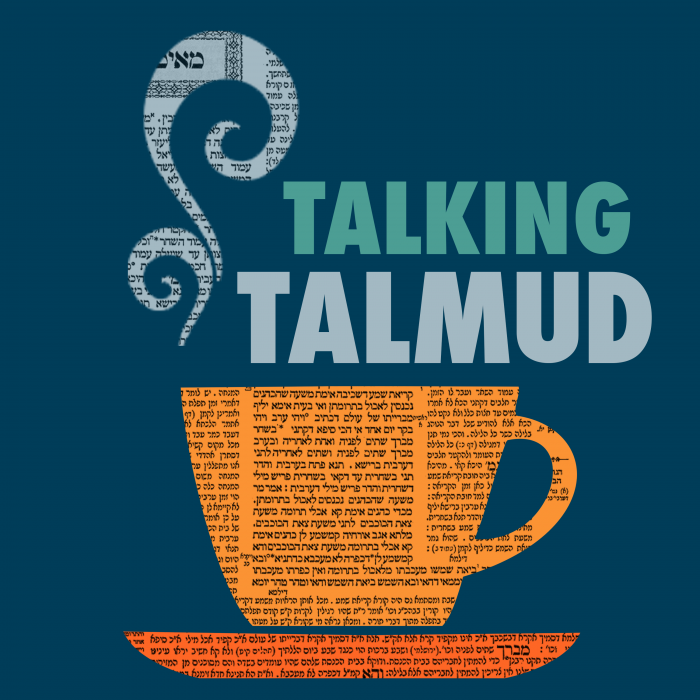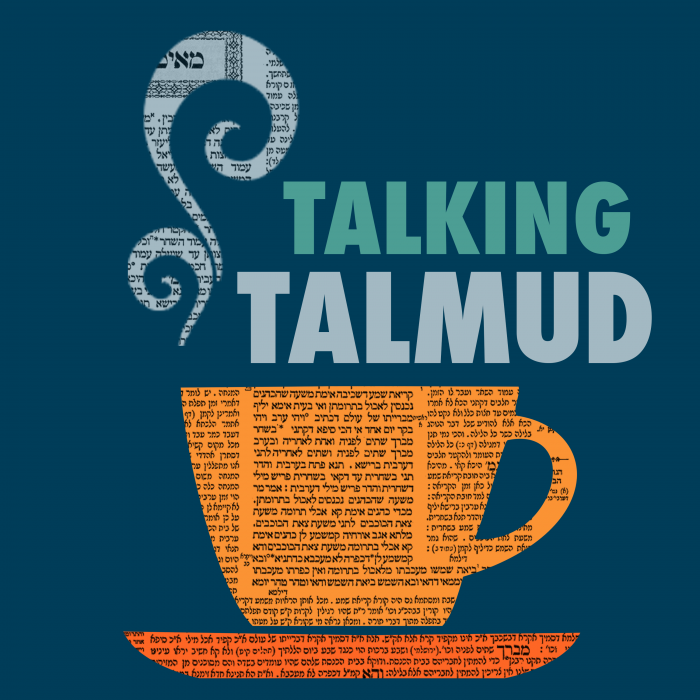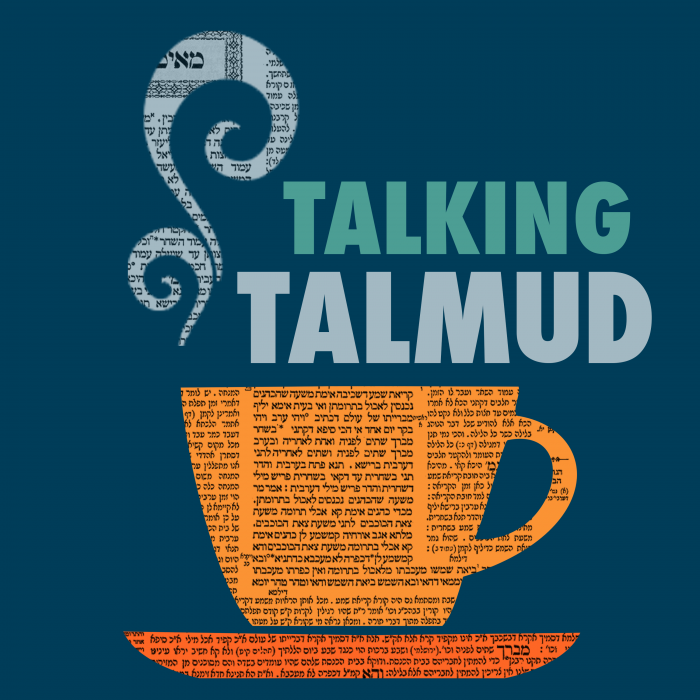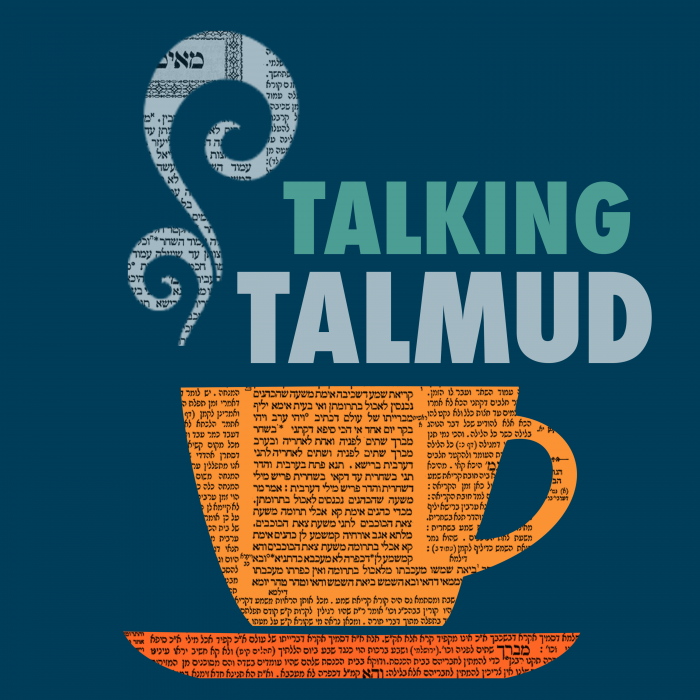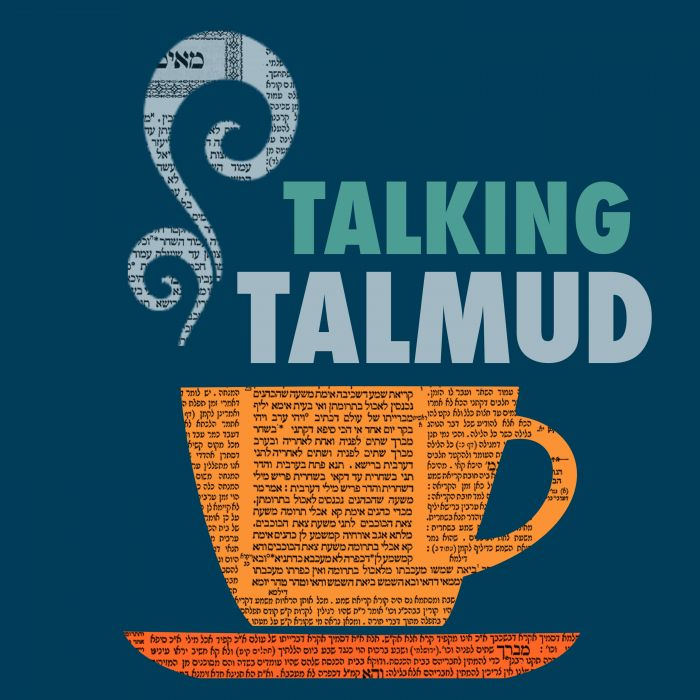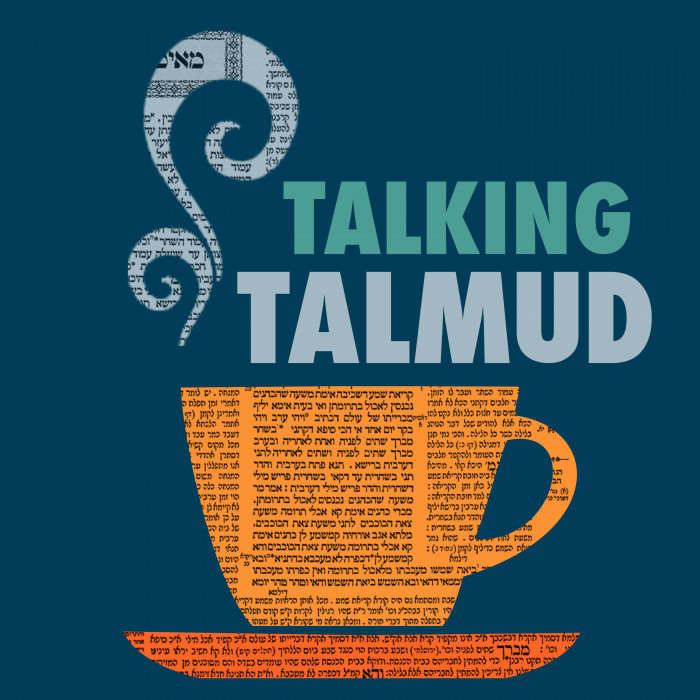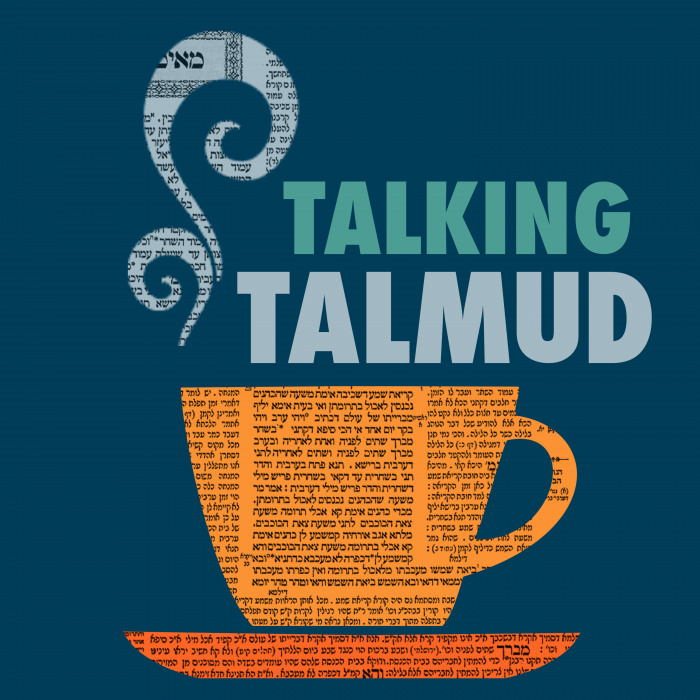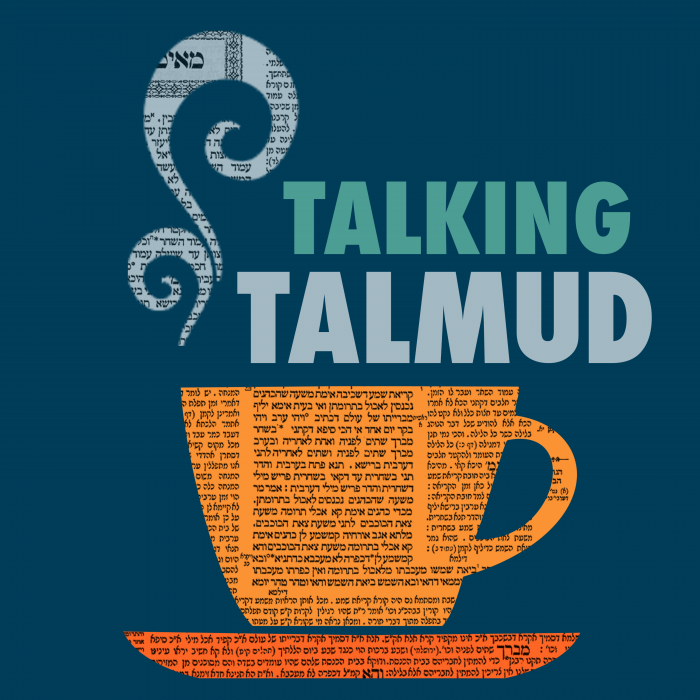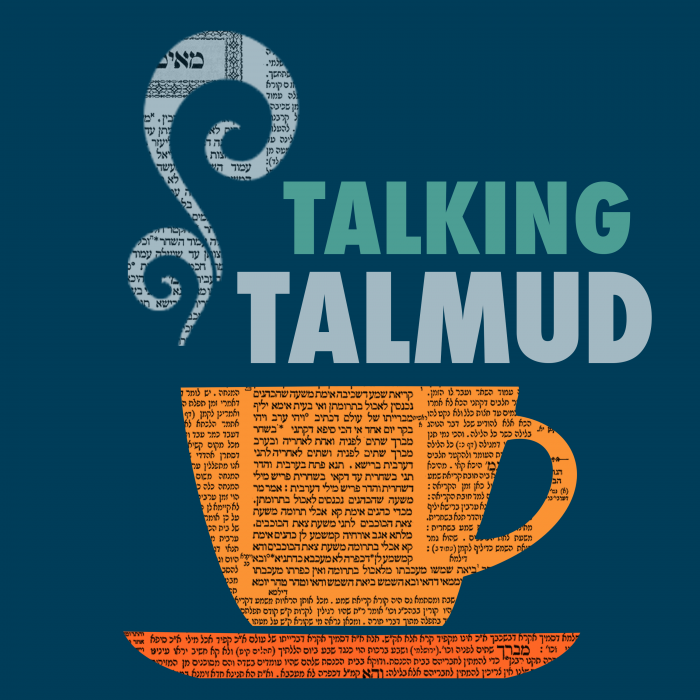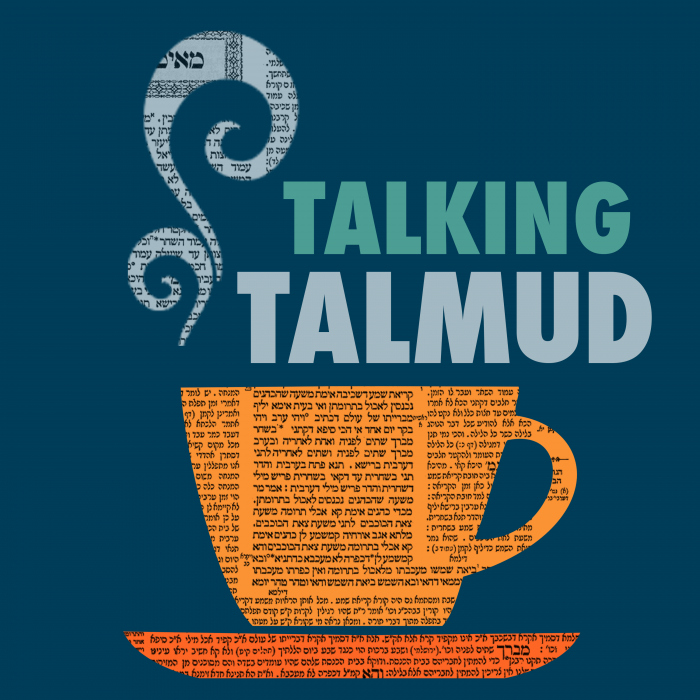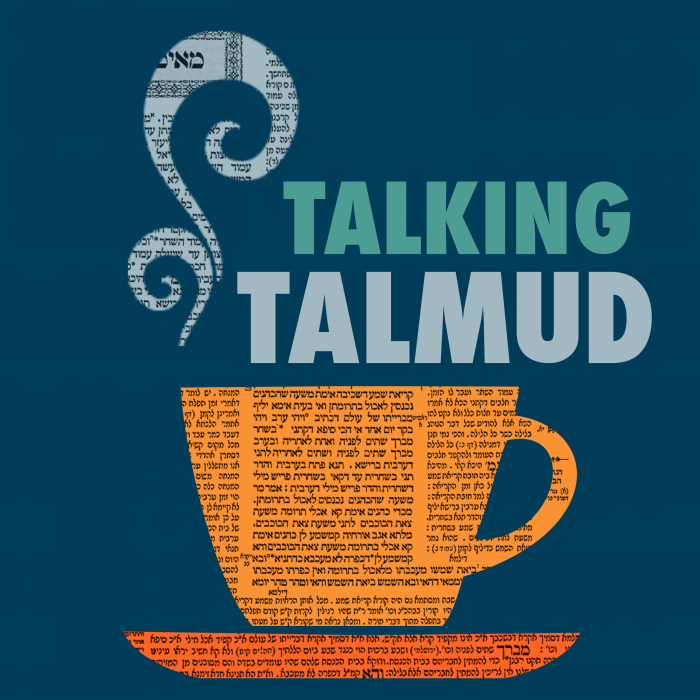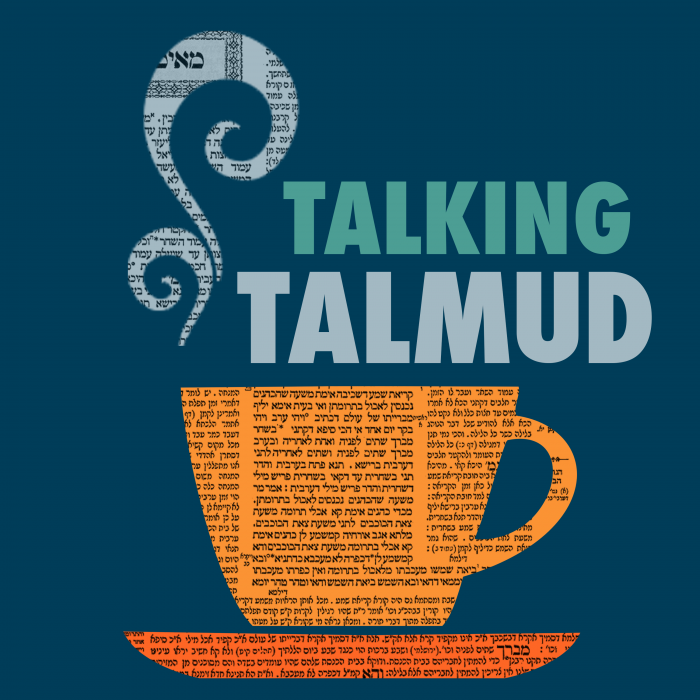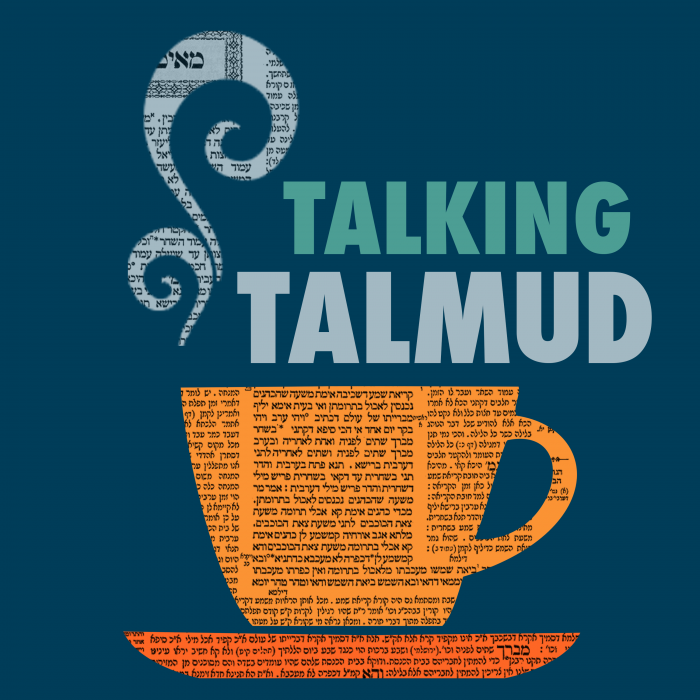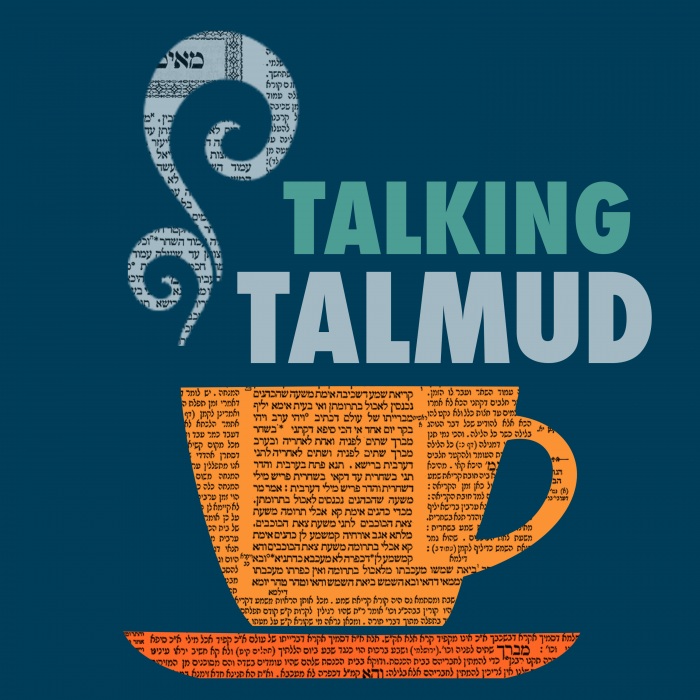It is best to pray at the time that the community is praying. Why is that? What type of things is it important to pray for? Is it better to pray in a synogogue or a place where one learns? Why? Is it best to live near one’s rabbi or not? One should read the prasha twice and once with a translation before it is read in the synogogue. Is it ok to do a number of weeks at once? The gemara mentions things that rabbis taught their children regarding behaviors that one should be careful about – including some they learned from people of other nations. One should be careful not to sit on a bed of an Aramean women – three interpretations are brought regarding the meaning of this. One explanation includes a story of Rav Papa where he was almost framed for killing a baby but was saved because he checked first under the bed and found the dead baby.
This month’s learning is dedicated to the refuah shleima of our dear friend, Phyllis Hecht, גיטל פעשא בת מאשה רחל by all her many friends who love and admire her. Phyllis’ emuna, strength, and positivity are an inspiration.
Want to dedicate learning? Get started here:


Today’s daily daf tools:
This month’s learning is dedicated to the refuah shleima of our dear friend, Phyllis Hecht, גיטל פעשא בת מאשה רחל by all her many friends who love and admire her. Phyllis’ emuna, strength, and positivity are an inspiration.
Today’s daily daf tools:
Delve Deeper
Broaden your understanding of the topics on this daf with classes and podcasts from top women Talmud scholars.
New to Talmud?
Check out our resources designed to help you navigate a page of Talmud – and study at the pace, level and style that fits you.
The Hadran Women’s Tapestry
Meet the diverse women learning Gemara at Hadran and hear their stories.
Berakhot 8
מַאי דִּכְתִיב ״וַאֲנִי תְפִלָּתִי לְךָ ה׳ עֵת רָצוֹן״. אֵימָתַי עֵת רָצוֹן — בְּשָׁעָה שֶׁהַצִּבּוּר מִתְפַּלְּלִין.
What is the meaning of that which is written: “But as for me, let my prayer be unto You, Lord, in a time of favor; O God, in the abundance of Your mercy, answer me with the truth of Your salvation” (Psalms 69:14)? It appears that the individual is praying that his prayers will coincide with a special time of Divine favor. When is a time of favor? It is at the time when the congregation is praying. It is beneficial to pray together with the congregation, for God does not fail to respond to the entreaties of the congregation.
רַבִּי יוֹסֵי בְּרַבִּי חֲנִינָא אָמַר מֵהָכָא: ״כֹּה אָמַר ה׳ בְּעֵת רָצוֹן עֲנִיתִיךָ״.
Rabbi Yosei, son of Rabbi Ḥanina, said that the unique quality of communal prayer is derived from here: “Thus said the Lord, in a time of acceptance I have answered you and on a day of salvation I have aided you” (Isaiah 49:8).
רַבִּי אַחָא בְּרַבִּי חֲנִינָא אָמַר מֵהָכָא: ״הֶן אֵל כַּבִּיר וְלֹא יִמְאָס״: וּכְתִיב: ״פָּדָה בְשָׁלוֹם נַפְשִׁי מִקְּרָב לִי כִּי בְרַבִּים הָיוּ עִמָּדִי״.
Rabbi Aḥa, son of Rabbi Ḥanina, said that it is derived from here: “Behold, God is mighty, He despises no one” (Job 36:5). He adopts an alternative reading of the verse: “Behold, God will not despise” the prayer of “the mighty,” i.e., the community. And it is written: “He has redeemed my soul in peace so that none came upon me; for there were many with me. God shall hear and answer them…” (Psalms 55:19–20). This verse teaches that the prayer was answered because there were many with me when it was offered.
תַּנְיָא נָמֵי הָכִי, רַבִּי נָתָן אוֹמֵר: מִנַּיִן שֶׁאֵין הַקָּדוֹשׁ בָּרוּךְ הוּא מוֹאֵס בִּתְפִלָּתָן שֶׁל רַבִּים שֶׁנֶּאֱמַר: ״הֶן אֵל כַּבִּיר וְלֹא יִמְאָס״, וּכְתִיב: ״פָּדָה בְשָׁלוֹם נַפְשִׁי מִקְּרָב לִי״ וְגוֹ׳, אָמַר הַקָּדוֹשׁ בָּרוּךְ הוּא: כָּל הָעוֹסֵק בְּתוֹרָה וּבִגְמִילוּת חֲסָדִים וּמִתְפַּלֵּל עִם הַצִּבּוּר — מַעֲלֶה אֲנִי עָלָיו כְּאִילּוּ פְּדָאַנִי, לִי וּלְבָנַי, מִבֵּין אוּמּוֹת הָעוֹלָם.
That last proof was also taught in a baraita. Rabbi Natan says: From where do we know that the Holy One, Blessed be He, does not despise the prayer of the masses? As it is stated: “Behold, God does not despise the mighty,” and it is written: “He has redeemed my soul in peace so that none came upon me; for there were many with me.” Rabbi Natan interprets this not as David speaking about himself, but as God speaking to Israel. The Holy One, Blessed be He, says: Anyone who engages in Torah study, which is called peace in the verse: “All its ways are peace” (Proverbs 3:17); and in acts of kindness, and prays with the congregation, I ascribe to him credit as if he redeemed Me and My children from among the nations of the world.
אָמַר רֵישׁ לָקִישׁ: כָּל מִי שֶׁיֵּשׁ לוֹ בֵּית הַכְּנֶסֶת בְּעִירוֹ, וְאֵינוֹ נִכְנָס שָׁם לְהִתְפַּלֵּל, נִקְרָא ״שָׁכֵן רַע״, שֶׁנֶּאֱמַר: ״כֹּה אָמַר ה׳ עַל כָּל שְׁכֵנַי הָרָעִים הַנֹּגְעִים בַּנַּחֲלָה אֲשֶׁר הִנְחַלְתִּי אֶת עַמִּי אֶת יִשְׂרָאֵל״. וְלֹא עוֹד אֶלָּא שֶׁגּוֹרֵם גָּלוּת לוֹ וּלְבָנָיו, שֶׁנֶּאֱמַר: ״הִנְנִי נֹתְשָׁם מֵעַל אַדְמָתָם וְאֶת בֵּית יְהוּדָה אֶתּוֹשׁ מִתּוֹכָם״.
Continuing to extol communal prayer, Reish Lakish said: One who has a synagogue nearby in his city but does not enter to pray there is called an evil neighbor, as it is stated: “Thus said the Lord: As for all My evil neighbors who touch My inheritance which I have caused My people Israel to inherit, behold, I will pluck them up from off their land, and will pluck the house of Judah up from among them” (Jeremiah 12:14). One who only touches, but does not enter the place of prayer, My inheritance, is considered an evil neighbor. And furthermore, he is punished in that he causes himself and his children to go into exile, as it is stated: “Behold, I will pluck them up from off their land, and will pluck the house of Judah up from among them.”
אֲמַרוּ לֵיהּ לְרַבִּי יוֹחָנָן: אִיכָּא סָבֵי בְּבָבֶל. תְּמַהּ וַאֲמַר: ״לְמַעַן יִרְבּוּ יְמֵיכֶם וִימֵי בְנֵיכֶם עַל הָאֲדָמָה״ כְּתִיב, אֲבָל בְּחוּצָה לָאָרֶץ — לָא? כֵּיוָן דְאָמְרִי לֵיהּ מְקַדְּמִי וּמְחַשְּׁכִי לְבֵי כְנִישְׁתָּא, אֲמַר: הַיְינוּ דְּאַהֲנִי לְהוּ.
The Gemara relates that when the Sages told Rabbi Yoḥanan that there are elders in Babylonia, he was confounded and said: It is written: “So that your days will be lengthened and the days of your children upon the land the Lord swore to your forefathers to give to them like the days of heaven on the earth” (Deuteronomy 11:21); lengthened in Eretz Yisrael but not outside of the Land. Why then, do the residents of Babylonia live long lives? When they told him that the people in Babylonia go early in the morning and go late in the evening to the synagogue, he said: That is what was effective for them in extending their lives.
דְּאָמַר רַבִּי יְהוֹשֻׁעַ בֶּן לֵוִי לִבְנֵיהּ: קַדִּימוּ וְחַשִּׁיכוּ וְעַיִּילוּ לְבֵי כְנִישְׁתָּא, כִּי הֵיכִי דְּתוֹרְכוּ חַיֵּי. אָמַר רַבִּי אַחָא בְּרַבִּי חֲנִינָא: מַאי קְרָא — ״אַשְׁרֵי אָדָם שֹׁמֵעַ לִי לִשְׁקֹד עַל דַּלְתֹתַי יוֹם יוֹם לִשְׁמוֹר מְזוּזֹת פְּתָחָי״, וּכְתִיב בָּתְרֵיהּ: ״כִּי מֹצְאִי מָצָא חַיִּים״.
As Rabbi Yehoshua ben Levi said to his sons: Go early and go late and enter the synagogue, so that your lives will be extended. And Rabbi Aḥa, son of Rabbi Ḥanina, said: Upon what verse is this based? As it is stated: “Happy is the man who listens to Me, watching daily at My gates, guarding at My door posts” (Proverbs 8:34). And the reward for doing so is written thereafter: “For whoso finds Me finds life and obtains the favor of the Lord” (Proverbs 8:35).
אָמַר רַב חִסְדָּא: לְעוֹלָם יִכָּנֵס אָדָם שְׁנֵי פְתָחִים בְּבֵית הַכְּנֶסֶת. שְׁנֵי פְתָחִים סָלְקָא דַעְתָּךְ?! אֶלָּא אֵימָא, שִׁיעוּר שְׁנֵי פְתָחִים, וְאַחַר כָּךְ יִתְפַּלֵּל.
Based on this verse, Rav Ḥisda said: A person should always enter two doorways into the synagogue. This statement is unclear. Immediately, the Gemara asks: Does it enter your mind that Rav Ḥisda meant that one should enter two doorways literally? What if a synagogue only has a single doorway? Rather, emend his statement and say that Rav Ḥisda meant that one should enter a distance of two doorways into the synagogue and then pray. In entering a distance of two doorways, one fulfills the verse: Guarding at My door posts, in the plural.
״עַל זֹאת יִתְפַּלֵּל כָּל חָסִיד אֵלֶיךָ לְעֵת מְצֹא״, אָמַר רַבִּי חֲנִינָא: ״לְעֵת מְצֹא״ זוֹ אִשָּׁה, שֶׁנֶּאֱמַר: ״מָצָא אִשָּׁה מָצָא טוֹב״.
Having mentioned the verse, “For whoso finds Me finds life,” the Gemara seeks to clarify its meaning. It is said, “For this, let every pious man pray to You in the time of finding, that the overflowing waters may not reach him” (Psalms 32:6). With regard to the phrase, the time of finding, Rabbi Ḥanina said: The time of finding refers to the time one must find a wife, that one should pray to find a suitable woman to marry. As it is said: “He who finds [matza] a wife finds [matza] good and obtains favor from the Lord” (Proverbs 18:22).
בְּמַעְרְבָא כִּי נָסֵיב אִינָשׁ אִתְּתָא, אָמְרִי לֵיהּ הָכִי: ״מָצָא״ אוֹ ״מוֹצֵא״? ״מָצָא״ דִּכְתִיב: ״מָצָא אִשָּׁה מָצָא טוֹב וַיָּפֶק רָצוֹן מֵה׳״, ״מוֹצֵא״ דִּכְתִיב: ״וּמוֹצֶא אֲנִי מָר מִמָּוֶת אֶת הָאִשָּׁה״ וְגוֹ׳.
In Eretz Yisrael, the custom was that when a man married a woman, they would ask him: Matza or motzeh? In other words, they would ask the groom whether the appropriate passage for his wife is the above verse from Proverbs that begins with the word matza, as it is written: “He who finds a wife finds good and obtains favor from the Lord” or whether the more appropriate verse is the one beginning with the word motzeh, as it is written: “And I find [motzeh] the woman more bitter than death” (Ecclesiastes 7:26).
רַבִּי נָתָן אוֹמֵר: ״לְעֵת מְצֹא״ — זוֹ תּוֹרָה, שֶׁנֶּאֱמַר: ״כִּי מֹצְאִי מָצָא חַיִּים״ וְגוֹ׳.
Rabbi Natan says: The time of finding refers to the time of finding Torah, as it is stated in a verse referring to Torah: “He who finds Me finds life.” The Torah is the object most sought.
רַב נַחְמָן בַּר יִצְחָק אָמַר — ״לְעֵת מְצֹא״ זוֹ מִיתָה, שֶׁנֶּאֱמַר: ״לַמָּוֶת תּוֹצָאוֹת״.
Rav Naḥman bar Yitzḥak said: The time of finding refers to death. One should pray that when death comes, he will leave the world peacefully, as it is stated: “Issues [totzaot] of death” (Psalms 68:21). Rav Naḥman bar Yitzḥak’s statement is based on the etymological similarity between totzaot and matza, finding.
תַּנְיָא נָמֵי הָכִי: תְּשַׁע מֵאוֹת וּשְׁלֹשָׁה מִינֵי מִיתָה נִבְרְאוּ בָּעוֹלָם, שֶׁנֶּאֱמַר: ״לַמָּוֶת תּוֹצָאוֹת״, ״תּוֹצָאוֹת״ בְּגִימַטְרִיָּא הָכִי הָווּ. קָשָׁה שֶׁבְּכֻלָּן — אַסְכָּרָא, נִיחָא שֶׁבְּכֻלָּן — נְשִׁיקָה. אַסְכָּרָא דָּמְיָא כְּחִיזְרָא בִּגְבָבָא דְעַמְרָא דִּלְאַחוֹרֵי נַשְׁרָא, וְאִיכָּא דְאָמְרִי כְּפִיטּוּרֵי בְּפִי וֶשֶׁט, נְשִׁיקָה דָּמְיָא כְּמִשְׁחַל בִּנִיתָא מֵחֲלָבָא.
It was also taught in a baraita: Nine hundred and three types of death were created in the world, as it is stated: “Issues [totzaot] of death,” and that, 903, is the numerical value [gimatriya] of totzaot. The Gemara explains that the most difficult of all these types of death is croup [askara], while the easiest is the kiss of death. Croup is like a thorn entangled in a wool fleece, which, when pulled out backwards, tears the wool. Some say that croup is like ropes at the entrance to the esophagus, which would be nearly impossible to insert and excruciating to remove. The kiss of death is like drawing a hair from milk. One should pray that he does not die a painful death.
רַבִּי יוֹחָנָן אָמַר: ״לְעֵת מְצֹא״ — זוֹ קְבוּרָה. אָמַר רַבִּי חֲנִינָא, מַאי קְרָא ״הַשְּׂמֵחִים אֱלֵי גִיל יָשִׂישׂוּ כִּי יִמְצְאוּ קָבֶר״. אָמַר רַבָּה בַּר רַב שֵׁילָא, הַיְינוּ דְּאָמְרִי אִינָשֵׁי: לִיבְעֵי אִינָשׁ רַחֲמֵי אֲפִילּוּ עַד זִיבּוּלָא בָּתְרָיְיתָא שְׁלָמָא.
Rabbi Yoḥanan said: The time of finding refers to a respectful burial, for which one should pray. Supporting Rabbi Yoḥanan’s interpretation, Rabbi Ḥanina said: What is the verse that teaches that the time of finding refers to burial? “Who rejoice in exultation and are glad when they can find a grave” (Job 3:22), as there are situations in which one is relieved when his body finds a grave in which to rest. Rabba bar Rav Sheila said, that is the meaning of the folk saying: A person should even pray for mercy until the final shovelful of dirt is thrown upon his grave.
מָר זוּטְרָא אָמַר: ״לְעֵת מְצֹא״ — זֶה בֵּית הַכִּסֵּא. אָמְרִי בְּמַעְרְבָא: הָא דְּמָר זוּטְרָא עֲדִיפָא מִכֻּלְּהוּ.
Mar Zutra said: The time of finding refers to finding a lavatory. As most places did not have a sewage system, one was forced to relieve himself outside the city. Because of this unpleasantness, finding a suitable location was called by Mar Zutra, the time of finding. In the West, Eretz Yisrael, they say: This explanation of Mar Zutra is preferable to all of them, as the term motza is explicitly associated in the Bible (see II Kings 10:27) with the lavatory (Rabbi Abraham Moshe Horovitz).
אֲמַר לֵיהּ רָבָא לְרַפְרָם בַּר פָּפָּא: לֵימָא לָן מָר מֵהָנֵי מִילֵּי מְעַלְּיָיתָא דְּאָמְרַתְּ מִשְּׁמֵיהּ דְּרַב חִסְדָּא בְּמִילֵּי דְבֵי כְנִישְׁתָּא.
Returning to the tractate’s central topic, Rava said to Rafram bar Pappa: Let the Master say to us some of those outstanding statements that you said in the name of Rav Ḥisda with regard to matters of the synagogue.
אֲמַר לֵיהּ, הָכִי אָמַר רַב חִסְדָּא: מַאי דִּכְתִיב, ״אֹהֵב ה׳ שַׁעֲרֵי צִיּוֹן מִכֹּל מִשְׁכְּנוֹת יַעֲקֹב״: אוֹהֵב ה׳ שְׁעָרִים הַמְצוּיָּינִים בַּהֲלָכָה, יוֹתֵר מִבָּתֵּי כְנֵסִיּוֹת וּמִבָּתֵּי מִדְרָשׁוֹת.
Rafram said to him, Rav Ḥisda said as follows: What is the meaning of the verse: “The Lord loves the gates of Zion [Tziyyon] more than all the dwellings of Jacob” (Psalms 87:2)? This means that the Lord loves the gates distinguished [metzuyanim] through the study of halakha as they are the gates of Zion, the outstanding gates, more than the synagogues and study halls. Although those places are the most outstanding of the dwellings of Jacob, they are not engaged in the study of halakha.
וְהַיְינוּ דְּאָמַר רַבִּי חִיָּיא בַּר אַמֵּי מִשְּׁמֵיהּ דְּעוּלָּא: מִיּוֹם שֶׁחָרַב בֵּית הַמִּקְדָּשׁ אֵין לוֹ לְהַקָּדוֹשׁ בָּרוּךְ הוּא בְּעוֹלָמוֹ אֶלָּא אַרְבַּע אַמּוֹת שֶׁל הֲלָכָה בִּלְבַד.
And this concept, that halakha is the most sublime pursuit, is expressed in that which Rabbi Ḥiyya bar Ami said in the name of Ulla: Since the day the Temple, where the Divine Presence rested in this world, was destroyed, the Holy One, Blessed be He, has only one place in His world where he reveals His presence exclusively; only the four cubits where the study of halakha is undertaken.
וְאָמַר אַבָּיֵי: מֵרֵישׁ הֲוָה גָּרֵיסְנָא בְּגוֹ בֵּיתָא וּמְצַלֵּינָא בְּבֵי כְנִישְׁתָּא. כֵּיוָן דִּשְׁמַעְנָא לְהָא דְּאָמַר רַבִּי חִיָּיא בַּר אַמֵּי מִשְּׁמֵיהּ דְּעוּלָּא — מִיּוֹם שֶׁחָרַב בֵּית הַמִּקְדָּשׁ אֵין לוֹ לְהַקָּדוֹשׁ בָּרוּךְ הוּא בְּעוֹלָמוֹ אֶלָּא אַרְבַּע אַמּוֹת שֶׁל הֲלָכָה בִּלְבַד — לָא הֲוָה מְצַלֵּינָא אֶלָּא הֵיכָא דְּגָרֵיסְנָא.
This statement has practical ramifications. Abaye said: At first I studied in the house and prayed in the synagogue. Once I heard what Rabbi Ḥiyya bar Ami said in the name of Ulla: Since the day the Temple was destroyed, the Holy One, Blessed be He, has only one place in His world, only the four cubits of halakha alone, from which I understood the significance of the four cubits of halakha, and I pray only where I study.
רַבִּי אַמֵּי וְרַבִּי אַסִּי אַף עַל גַּב דַּהֲווֹ לְהוּ תְּלֵיסַר בֵּי כְנִישְׁתָּא בִּטְבֶרְיָא לָא מְצַלּוּ אֶלָּא בֵּינֵי עַמּוּדֵי, הֵיכָא דַּהֲווֹ גָּרְסִי.
Similarly, the Gemara relates that Rabbi Ami and Rabbi Asi, despite the fact that they had thirteen synagogues in Tiberias, they would only pray between the pillars where they studied.
וְאָמַר רַבִּי חִיָּיא בַּר אַמֵּי מִשְּׁמֵיהּ דְּעוּלָּא: גָּדוֹל הַנֶּהֱנֶה מִיגִיעוֹ יוֹתֵר מִיְּרֵא שָׁמַיִם, דְּאִילּוּ גַּבֵּי יְרֵא שָׁמַיִם כְּתִיב ״אַשְׁרֵי אִישׁ יָרֵא אֶת ה׳״, וְאִילּוּ גַּבֵּי נֶהֱנָה מִיגִיעוֹ כְּתִיב: ״יְגִיעַ כַּפֶּיךָ כִּי תֹאכֵל אַשְׁרֶיךָ וְטוֹב לָךְ״. ״אַשְׁרֶיךָ״ — בָּעוֹלָם הַזֶּה, ״וְטוֹב לָךְ״ — לָעוֹלָם הַבָּא, וּלְגַבֵּי יְרֵא שָׁמַיִם, ״וְטוֹב לָךְ״ לָא כְּתִיב בֵּיהּ.
And Rabbi Ḥiyya bar Ami said in the name of Ulla: One who benefits from his hard labor is greater than a God-fearing person, i.e., one who is so enthralled by his fear of God that he sits idly by and does not work. As with regard to a God-fearing person, it is written: “Happy is the man who fears the Lord, who greatly desires His mitzvot” (Psalms 112:1), while with regard to one who benefits from his hard work, it is written: “By the labor of your hands you will live; you are happy and it is good for you” (Psalms 128:2). The Gemara explains this verse to mean that you are happy in this world, and it is good for you in the World-to-Come. And regarding a God-fearing person, happy is the man, is written about him but and it is good for you, is not written about him.
וְאָמַר רַבִּי חִיָּיא בַּר אַמֵּי מִשְּׁמֵיהּ דְּעוּלָּא: לְעוֹלָם יָדוּר אָדָם בִּמְקוֹם רַבּוֹ, שֶׁכָּל זְמַן שֶׁשִּׁמְעִי בֶּן גֵּרָא קַיָּים, לֹא נָשָׂא שְׁלֹמֹה אֶת בַּת פַּרְעֹה.
And Rabbi Ḥiyya bar Ami said in the name of Ulla: One should always live in the place where his teacher lives; thereby he will avoid sin. For as long as Shimi ben Gera, who according to tradition was a great Torah scholar and teacher of Solomon (see Gittin 59a), was alive, Solomon did not marry Pharaoh’s daughter. Immediately after the Bible relates the death of Shimi (I Kings, end of ch. 2), Solomon’s marriage to Pharaoh’s daughter is recorded (beginning of ch. 3).
וְהָתַנְיָא אַל יָדוּר!
The Gemara raises an objection: Wasn’t it taught in a baraita that one should not live where his teacher lives?
לָא קַשְׁיָא, הָא דִּכְיִיף לֵיהּ, הָא דְּלָא כְּיִיף לֵיהּ.
The Gemara answers: This is not difficult. This, which says that one should live where his teacher lives, is referring to a case where he is acquiescent to his teacher and will heed his teaching and instruction. While this baraita, which says that one should not live where his teacher lives, is referring to a case where he is not acquiescent to him and that will lead them to quarrel.
אָמַר רַב הוּנָא בַּר יְהוּדָה, אָמַר רַבִּי מְנַחֵם, אָמַר רַבִּי אַמֵּי: מַאי דִּכְתִיב, ״וְעוֹזְבֵי ה׳ יִכְלוּ״ — זֶה הַמַּנִּיחַ סֵפֶר תּוֹרָה וְיוֹצֵא.
The Gemara again returns to the topic of the synagogue. Rav Huna bar Yehuda said that Rabbi Menaḥem said that Rabbi Ami said: What is the practical halakhic meaning of that which is written: “They who forsake the Lord will perish” (Isaiah 1:28)? This verse refers to one who abandons the Torah scroll when it was taken out to be read and leaves the synagogue, as it appears that he is fleeing from God.
רַבִּי אֲבָהוּ נָפֵיק בֵּין גַּבְרָא לְגַבְרָא.
Practically speaking, the Gemara relates that Rabbi Abbahu would go out between one person who read the Torah and the next person who did so. Since the scroll was closed between readers, it was not considered to be a show of contempt.
בָּעֵי רַב פָּפָּא: בֵּין פְּסוּקָא לִפְסוּקָא מַהוּ?
Rav Pappa raised a dilemma: What is the ruling with regard to leaving between one verse and the next verse? Is one permitted to leave during a break in the Torah reading while the verse was translated into Aramaic?
תֵּיקוּ.
An answer to this question was not found, so the dilemma stands unresolved.
רַב שֵׁשֶׁת מַהְדַּר אַפֵּיהּ וְגָרֵיס. אָמַר: אֲנַן בְּדִידַן וְאִינְהוּ בְּדִידְהוּ.
The Gemara relates that Rav Sheshet would turn his face away from the Torah while it was being read and study. Explaining this practice, he said: We are engaged in ours, the study of the Oral Torah and they are engaged in theirs, listening to the Written Torah. Since Rav Sheshet was engaged in Torah study, he is not considered one who forsakes the Lord.
אָמַר רַב הוּנָא בַּר יְהוּדָה, אָמַר רַבִּי אַמֵּי: לְעוֹלָם יַשְׁלִים אָדָם פָּרָשִׁיּוֹתָיו עִם הַצִּבּוּר. שְׁנַיִם מִקְרָא וְאֶחָד תַּרְגּוּם.
Rav Huna bar Yehuda said that Rabbi Ami said: A person should always complete his Torah portions with the congregation. The congregation reads a particular Torah portion every Shabbat, and during the week prior to each Shabbat, one is required to read the Bible text of the weekly portion twice and the translation once.
וַאֲפִילּוּ ״עֲטָרוֹת וְדִיבֹן״. שֶׁכָּל הַמַּשְׁלִים פָּרָשִׁיּוֹתָיו עִם הַצִּבּוּר מֵאֲרִיכִין לוֹ יָמָיו וּשְׁנוֹתָיו.
This applies to every verse, even a verse like: “Atarot and Divon and Yazer and Nimra and Ḥeshbon and Elaleh and Sevam and Nevo and Beon” (Numbers 32:3). While that verse is comprised entirely of names of places that are identical in Hebrew and Aramaic, one is nevertheless required to read the verse twice and its translation once, as one who completes his Torah portions with the congregation is rewarded that his days and years are extended.
רַב בִּיבִי בַּר אַבָּיֵי סָבַר לְאַשְׁלוֹמִינְהוּ לְפָרָשְׁיָיתָא דְּכֹלָּא שַׁתָּא בְּמַעֲלֵי יוֹמָא דְכִפּוּרֵי, תְּנָא לֵיהּ חִיָּיא בַּר רַב מִדִּפְתִּי: כְּתִיב: ״וְעִנִּיתֶם אֶת נַפְשֹׁתֵיכֶם בְּתִשְׁעָה לַחֹדֶשׁ בָּעֶרֶב״.
Rav Beivai bar Abaye thought to finish all the Torah portions of the entire year, which he had been unable to complete at their appointed time, on the eve of Yom Kippur when he would have time to do so. But Ḥiyya bar Rav of Difti taught him: It is written with regard to Yom Kippur: “And you shall afflict your souls on the ninth day of the month in the evening, from evening to evening you shall keep your Sabbath” (Leviticus 23:32).
וְכִי בְּתִשְׁעָה מִתְעַנִּין?! וַהֲלֹא בַּעֲשָׂרָה מִתְעַנִּין! אֶלָּא לוֹמַר לְךָ כָּל הָאוֹכֵל וְשׁוֹתֶה בִּתְשִׁיעִי, מַעֲלֶה עָלָיו הַכָּתוּב כְּאִילּוּ מִתְעַנֶּה תְּשִׁיעִי וַעֲשִׂירִי.
The Gemara wonders: And does one fast on the ninth of Tishrei? Doesn’t one fast on the tenth of Tishrei, as the Torah says at the beginning of that portion: “However, on the tenth day of this seventh month is the Day of Atonement; there shall be a holy convocation for you, and you shall afflict your souls” (Leviticus 23:27)? Rather, this verse comes to tell you: One who eats and drinks on the ninth day of Tishrei in preparation for the fast the next day, the verse ascribes him credit as if he fasted on both the ninth and the tenth of Tishrei. Ḥiyya bar Rav of Difti cited this verse to Rav Beivai bar Abaye to teach him that Yom Kippur eve is dedicated to eating and drinking, not to completing the Torah portions one may have missed throughout the year.
סָבַר לְאַקְדּוֹמִינְהוּ, אָמַר לֵיהּ הָהוּא סָבָא, תְּנֵינָא: וּבִלְבַד שֶׁלֹּא יַקְדִּים וְשֶׁלֹּא יְאַחֵר.
When Rav Beivai heard this, he thought to read the Torah portions earlier, before they were to be read by the community. A certain unnamed elder told him, we learned: As long as one does not read the Torah portions earlier or later than the congregation. One must read them together with the congregation.
כְּדַאֲמַר לְהוּ רַבִּי יְהוֹשֻׁעַ בֶּן לֵוִי לִבְנֵיהּ: אַשְׁלִימוּ פָּרָשְׁיוֹתַיְיכוּ עִם הַצִּבּוּר שְׁנַיִם מִקְרָא וְאֶחָד תַּרְגּוּם.
As Rabbi Yehoshua ben Levi told his sons: Complete your portions with the congregation, the Bible text twice and the translation once.
וְהִזָּהֲרוּ בִּוְרִידִין כְּרַבִּי יְהוּדָה, דִּתְנַן: רַבִּי יְהוּדָה אוֹמֵר: עַד שֶׁיִּשְׁחוֹט אֶת הַוְּרִידִין.
He also advised them: Be careful with the jugular veins, in accordance with the opinion of Rabbi Yehuda, as we learned in a mishna with regard to the laws of ritual slaughter: Rabbi Yehuda said: Cutting the trachea and esophagus in the ritual slaughter of a bird does not render the bird kosher until he slaughters the jugular veins as well. While this is not halakhically required, it is appropriate to do so to prevent significant amounts of blood from remaining in the bird.
וְהִזָּהֲרוּ בְּזָקֵן שֶׁשָּׁכַח תַּלְמוּדוֹ מֵחֲמַת אוֹנְסוֹ. דְּאָמְרִינַן: לוּחוֹת וְשִׁבְרֵי לוּחוֹת מוּנָּחוֹת בָּאָרוֹן.
Rabbi Yehoshua ben Levi further advised: And be careful to continue to respect an elder who has forgotten his Torah knowledge due to circumstances beyond his control. Even though he is no longer a Torah scholar, he must still be respected for the Torah that he once possessed. As we say: Both the tablets of the Covenant and the broken tablets are placed in the Ark of the Covenant in the Temple. Even though the first tablets were broken, their sanctity obligates one not to treat them with contempt. An elder who forgot the Torah knowledge he once possessed is likened to these broken tablets.
אָמַר לְהוּ רָבָא לִבְנֵיהּ: כְּשֶׁאַתֶּם חוֹתְכִין בָּשָׂר, אַל תַּחְתְּכוּ עַל גַּב הַיָּד. אִיכָּא דְאָמְרִי: מִשּׁוּם סַכָּנָה. וְאִיכָּא דְאָמְרִי: מִשּׁוּם קִלְקוּל סְעוּדָה.
Rava said to his sons three bits of advice: When you cut meat, do not cut it on your hand. The Gemara offers two explanations for this. Some say: Due to the danger that one might accidentally cut his hand, and some say: Due to the fact that it could ruin the meal, as even if one only cut himself slightly, that small amount of blood could still spoil the meat and render it repulsive to eat.
וְאַל תֵּשְׁבוּ עַל מִטַּת אֲרַמִּית, וְאַל תַּעַבְרוּ אֲחוֹרֵי בֵּית הַכְּנֶסֶת בְּשָׁעָה שֶׁהַצִּבּוּר מִתְפַּלְּלִין. וְאַל תֵּשְׁבוּ עַל מִטַּת אֲרַמִּית, אִיכָּא דְאָמְרִי לָא תִּגְנוֹ בְּלָא קְרִיאַת שְׁמַע, וְאִיכָּא דְאָמְרִי דְּלָא תִּנְסְבוּ גִּיּוֹרְתָא. וְאִיכָּא דְאָמְרִי, אֲרַמִּית מַמָּשׁ.
And Rava also advised: Do not sit on the bed of an Aramean woman, and do not pass by a synagogue when the community is praying. The Gemara explains: Some say: Do not sit on the bed of an Aramean woman means one should not go to sleep without reciting Shema, as by doing so, it is tantamount to sleeping in the bed of a non-Jew, as his conduct is unbecoming a Jew. Others say: This means that one should not marry a woman who converted, and it is better to marry a woman who was born Jewish. And some say: It literally means that one should not sit on the bed of an Aramean, i.e., a non-Jewish woman.
וּמִשּׁוּם מַעֲשֶׂה דְרַב פָּפָּא. דְּרַב פָּפָּא אֲזַל לְגַבֵּי אֲרַמִּית, הוֹצִיאָה לוֹ מִטָּה. אָמְרָה לוֹ: שֵׁב! אָמַר לָהּ: אֵינִי יוֹשֵׁב, עַד שֶׁתַּגְבִּיהִי אֶת הַמִּטָּה. הִגְבִּיהָה אֶת הַמִּטָּה וּמָצְאוּ שָׁם תִּינוֹק מֵת. מִכָּאן אָמְרוּ חֲכָמִים: אָסוּר לֵישֵׁב עַל מִטַּת אֲרַמִּית.
This bit of advice was due to an incident involving Rav Pappa. Rav Pappa went to visit an Aramean woman. She took out a bed and she said to him: Sit. He said to her: I will not sit until you lift the sheets covering the bed. She did so and they found a dead baby there. Had Rav Pappa sat upon the bed, he would have been blamed for killing the baby. From that incident, the Sages said: One is prohibited from sitting on the bed of an Aramean woman.
וְאַל תַּעַבְרוּ אֲחוֹרֵי בֵּית הַכְּנֶסֶת בְּשָׁעָה שֶׁהַצִּבּוּר מִתְפַּלְּלִין — מְסַיַּיע לֵיהּ לְרַבִּי יְהוֹשֻׁעַ בֶּן לֵוִי. דְּאָמַר רַבִּי יְהוֹשֻׁעַ בֶּן לֵוִי: אָסוּר לוֹ לְאָדָם שֶׁיַּעֲבוֹר אֲחוֹרֵי בֵּית הַכְּנֶסֶת בְּשָׁעָה שֶׁהַצִּבּוּר מִתְפַּלְּלִין.
And Rava’s third bit of advice was, do not pass behind a synagogue while the congregation is praying. This statement supports the opinion of Rabbi Yehoshua ben Levi, as Rabbi Yehoshua ben Levi said: One is prohibited from passing behind a synagogue while the congregation is praying because they will suspect that he does not want to pray, and it is a show of contempt for the synagogue.
אָמַר אַבָּיֵי: וְלָא אֲמַרַן אֶלָּא דְּלֵיכָּא פִּתְחָא אַחֲרִינָא, אֲבָל אִיכָּא פִּתְחָא אַחֲרִינָא — לֵית לָן בַּהּ. וְלָא אֲמַרַן אֶלָּא דְּלֵיכָּא בֵּי כְנִישְׁתָּא אַחֲרִינָא, אֲבָל אִיכָּא בֵּי כְנִישְׁתָּא אַחֲרִינָא — לֵית לָן בַּהּ. וְלָא אֲמַרַן אֶלָּא דְּלָא דָּרֵי טוּנָא, וְלָא רָהֵיט, וְלָא מַנַּח תְּפִילִּין, אֲבָל אִיכָּא חַד מֵהָנָךְ — לֵית לַן בַּהּ.
Abaye introduced several caveats to Rabbi Yehoshua ben Levi’s statement and said:
We only said this prohibition if there is no other entrance to the synagogue, but if there is another entrance, since it is possible that he will simply use the second entrance, they will not suspect him, and the prohibition does not apply.
And we only said this prohibition if there is no other synagogue in the city, but if there is another synagogue, the prohibition does not apply.
And we only said this prohibition when he is not carrying a burden, and not running, and not wearing phylacteries. But if one of those factors applies, the prohibition does not apply. If he is carrying a burden or running, clearly he is occupied with his work. If he is wearing phylacteries, it is evident that he is a God-fearing individual and they will not suspect him.
תַּנְיָא, אָמַר רַבִּי עֲקִיבָא: בִּשְׁלֹשָׁה דְבָרִים אוֹהֵב אֲנִי אֶת הַמָּדִיִּים, כְּשֶׁחוֹתְכִין אֶת הַבָּשָׂר — אֵין חוֹתְכִין אֶלָּא עַל גַּבֵּי הַשּׁוּלְחָן, כְּשֶׁנּוֹשְׁקִין — אֵין נוֹשְׁקִין אֶלָּא עַל גַּב הַיָּד, וּכְשֶׁיּוֹעֲצִין — אֵין יוֹעֲצִין אֶלָּא בַּשָּׂדֶה.
The Gemara cites a statement from a baraita, along the lines of Rava’s advice to refrain from cutting meat on one’s hands: Rabbi Akiva said: In three aspects of their conduct, I like the Medes, and we should learn from their practices. When they cut meat, they cut it only on the table and not on their hands; when they kiss, either as a show of affection or honor, they kiss only the back of the hand and do not give the person being kissed an unpleasant feeling; and when they hold counsel, they only hold counsel in the field so others will not hear their secrets.
אָמַר רַב אַדָּא בַּר אַהֲבָה: מַאי קְרָאָה ״וַיִּשְׁלַח יַעֲקֹב וַיִּקְרָא לְרָחֵל וּלְלֵאָה הַשָּׂדֶה אֶל צֹאנוֹ״.
Rav Adda bar Ahava said: From what verse is this derived? From the verse, “And Jacob sent and he called Rachel and Leah to the field to his flock” (Genesis 31:4); it was only there in the field that he held counsel with them.
תַּנְיָא אָמַר רַבָּן גַּמְלִיאֵל: בִּשְׁלֹשָׁה דְבָרִים אוֹהֵב אֲנִי אֶת הַפַּרְסִיִּים: הֵן צְנוּעִין בַּאֲכִילָתָן, וּצְנוּעִין בְּבֵית הַכִּסֵּא, וּצְנוּעִין בְּדָבָר אַחֵר.
It was taught in a baraita, Rabban Gamliel said: In three aspects of their conduct, I like the Persians: They are a modest people; they are modest in their eating, they are modest in the lavatory, and they are modest in another matter, i.e., sexual relations.
״אֲנִי צִוֵּיתִי לִמְקֻדָּשָׁי״, תָּנֵי רַב יוֹסֵף: אֵלּוּ הַפַּרְסִיִּים הַמְקוּדָּשִׁין וּמְזוּמָּנִין לְגֵיהִנָּם.
While they have been praised here regarding certain specific aspects of their conduct, the Gemara proceeds to offer another perspective on the Persians based on a verse describing the destruction of Babylonia at the hands of the Persian and Median armies: “I have commanded My consecrated ones; I have also called My mighty ones for My anger, even My proudly exulting ones” (Isaiah 13:3). Rav Yosef taught a baraita: These are the Persians who are consecrated and designated for Gehenna, for they have been sent by God to carry out his mission of anger, and they will be sent to Gehenna.
רַבָּן גַּמְלִיאֵל אוֹמֵר וְכוּ׳: אָמַר רַב יְהוּדָה, אָמַר שְׁמוּאֵל: הֲלָכָה כְּרַבָּן גַּמְלִיאֵל.
The Gemara returns to explain the mishna, in which we learned that Rabban Gamliel says: One may recite Shema until dawn. Rav Yehuda said that Shmuel said: The halakha is in accordance with the opinion of Rabban Gamliel.
תַּנְיָא: רַבִּי שִׁמְעוֹן בֶּן יוֹחַי אוֹמֵר פְּעָמִים שֶׁאָדָם קוֹרֵא קְרִיאַת שְׁמַע שְׁתֵּי פְּעָמִים בַּלַּיְלָה, אַחַת קוֹדֶם שֶׁיַּעֲלֶה עַמּוּד הַשַּׁחַר וְאַחַת לְאַחַר שֶׁיַּעֲלֶה עַמּוּד הַשַּׁחַר, וְיוֹצֵא בָּהֶן יְדֵי חוֹבָתוֹ אַחַת שֶׁל יוֹם וְאַחַת שֶׁל לַיְלָה.
It was taught in a baraita: Based on Rabban Gamliel’s ruling, Rabbi Shimon ben Yoḥai said: At times, one recites Shema twice at night, once just before dawn and once just after dawn, and he thereby fulfills his obligation to recite Shema, one of the day and one of the night. According to Rabban Gamliel, the Shema that he recited before dawn fulfills his evening obligation and the Shema that he recited after dawn fulfills his morning obligation.
הָא גוּפָא קַשְׁיָא, אָמְרַתְּ: פְּעָמִים שֶׁאָדָם קוֹרֵא קְרִיאַת שְׁמַע שְׁתֵּי פְּעָמִים בַּלַּיְלָה, אַלְמָא לְאַחַר שֶׁיַּעֲלֶה עַמּוּד הַשַּׁחַר לֵילְיָא הוּא, וַהֲדַר תָּנֵי: יוֹצֵא בָּהֶן יְדֵי חוֹבָתוֹ אַחַת שֶׁל יוֹם וְאַחַת שֶׁל לַיְלָה, אַלְמָא יְמָמָא הוּא!
This Tosefta is self-contradictory. Initially, you said: At times one recites Shema twice at night. Apparently, the time just after dawn is still night. And then you taught: He thereby fulfills his obligation to recite Shema one of the day and one of the night. Apparently, the time in question is considered day, as otherwise, he would not have fulfilled his obligation to recite Shema during the day. There is an internal contradiction with regard to the status of the time just after dawn. Is it considered day or night?
לָא — לְעוֹלָם לֵילְיָא הוּא. וְהָא דְּקָרֵי לֵיהּ ״יוֹם״ — דְּאִיכָּא אִינָשֵׁי דְּקָיְימִי בְּהַהִיא שַׁעְתָּא.
The Gemara answers: No, there is no contradiction. Actually, the time just after dawn, when it is still dark, is considered night and the fact that it is referred to here as day is because there are people who rise from their sleep at that time and, if the need arises, it can be characterized as bekumekha, when you rise, despite the fact that it is still night.
אָמַר רַב אַחָא בַּר חֲנִינָא, אָמַר רַבִּי יְהוֹשֻׁעַ בֶּן לֵוִי: הֲלָכָה כְּרַבִּי שִׁמְעוֹן בֶּן יוֹחַי.
Rav Aḥa bar Ḥanina said that Rabbi Yehoshua ben Levi said: The halakha is in accordance with the opinion of Rabbi Shimon ben Yoḥai.
אִיכָּא דְּמַתְנֵי לְהָא דְּרַב אַחָא בַּר חֲנִינָא אַהָא. דְּתַנְיָא, רַבִּי שִׁמְעוֹן בֶּן יוֹחַי אוֹמֵר מִשּׁוּם רַבִּי עֲקִיבָא: פְּעָמִים שֶׁאָדָם קוֹרֵא קְרִיאַת שְׁמַע שְׁתֵּי פְּעָמִים בַּיּוֹם, אַחַת קוֹדֶם הָנֵץ הַחַמָּה, וְאַחַת לְאַחַר הַנֵּץ הַחַמָּה, וְיוֹצֵא בָּהֶן יְדֵי חוֹבָתוֹ, אַחַת שֶׁל יוֹם וְאַחַת שֶׁל לַיְלָה.
Some teach this statement of Rav Aḥa bar Ḥanina, in which he ruled that the halakha is in accordance with the opinion of Rabbi Shimon ben Yoḥai, with regard to this halakha, which is stylistically similar to the previous halakha. As it was taught in a baraita that Rabbi Shimon ben Yoḥai said in the name of Rabbi Akiva: At times, one recites Shema twice during the day, once just before sunrise and once just after sunrise, and he thereby fulfills his dual obligation to recite Shema: One, that he recites after sunrise, Shema of the day, and one, that he recites before sunrise, Shema of the night.
הָא גוּפָא קַשְׁיָא. אָמְרַתְּ פְּעָמִים שֶׁאָדָם קוֹרֵא קְרִיאַת שְׁמַע שְׁתֵּי פְּעָמִים בַּיּוֹם, אַלְמָא קוֹדֶם הָנֵץ הַחַמָּה יְמָמָא הוּא, וַהֲדַר תָּנֵי יוֹצֵא בָּהֶן יְדֵי חוֹבָתוֹ אַחַת שֶׁל יוֹם וְאַחַת שֶׁל לַיְלָה, אַלְמָא לֵילְיָא הוּא!
This baraita is self-contradictory. Initially, you said: “At times one recites Shema twice during the day.” Apparently, the time just before sunrise is considered day. And then you taught: “He thereby fulfills his dual obligation to recite Shema, one of the day and one of the night.” Apparently, the time in question is considered night, as otherwise, he could not thereby fulfill his obligation to recite Shema during the night.



